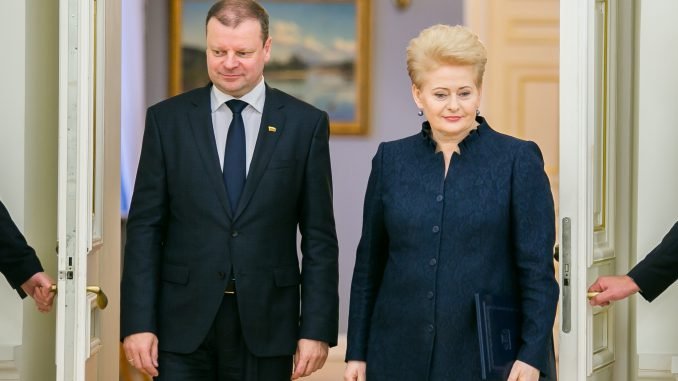
The government proposes to increase defense spending to 948 million euros next year, from 873 million euros this year. Based on the latest economic projections, this would account for 2.01 percent of GDP.
The president-led State Defense Council agreed last spring that defense funding should reach 2.05 percent of GDP in 2019.
Skvernelis attributes the difference in relative figures to economic growth estimates being higher than earlier projected.
“It’s better to receive a fixed amount of money than have a fixed percentage,” he told reporters on Wednesday. “We’ll ensure that the level of defense funding is in line with our commitments.”
Skvernelis noted that the State Defense Council is “an advisory body that has no decision-making powers”.
The prime minister also criticized Grybauskaitė’s decision to veto a bill that would have opened the way for the government to borrow funds both for increasing the defense budget and for providing funding to the Social Democratic Labor Party of Lithuania (LSDDP), the minor ruling coalition partner of the Lithuanian Farmers and Greens Union (LVŽS).
The government wanted to add 18 million euros to this year’s defense budget in order to meet NATO’s 2 percent of GDP spending target.
“(The president) shouldn’t have vetoed the budget bill. If it hadn’t been for the veto, we would have had a significant growth in funding,” Skvernelis said.
In vetoing the bill, the president proposed to allow the government to borrow funds for the defense budget this year, with funding for the LSDDP to be earmarked in next year’s central government budget.
Živilė Šatūnienė, an advisor to President Grybauskaitė, said during a discussion at the parliament on Wednesday that the proposed defense budget was not in line with the State Defense Council’s decision.
“It’s a pity that the 2019 budget plan does not match the letter and spirit of the State Defense Council’s decision,” the advisor told the parliament’s Committee on National Security and Defense.
“It is at least 17 million euros short of the 2.05 percent target, based on the fall estimate. Things are the way they are. I don’t know if there could be more will to raise that budget,” she added.
